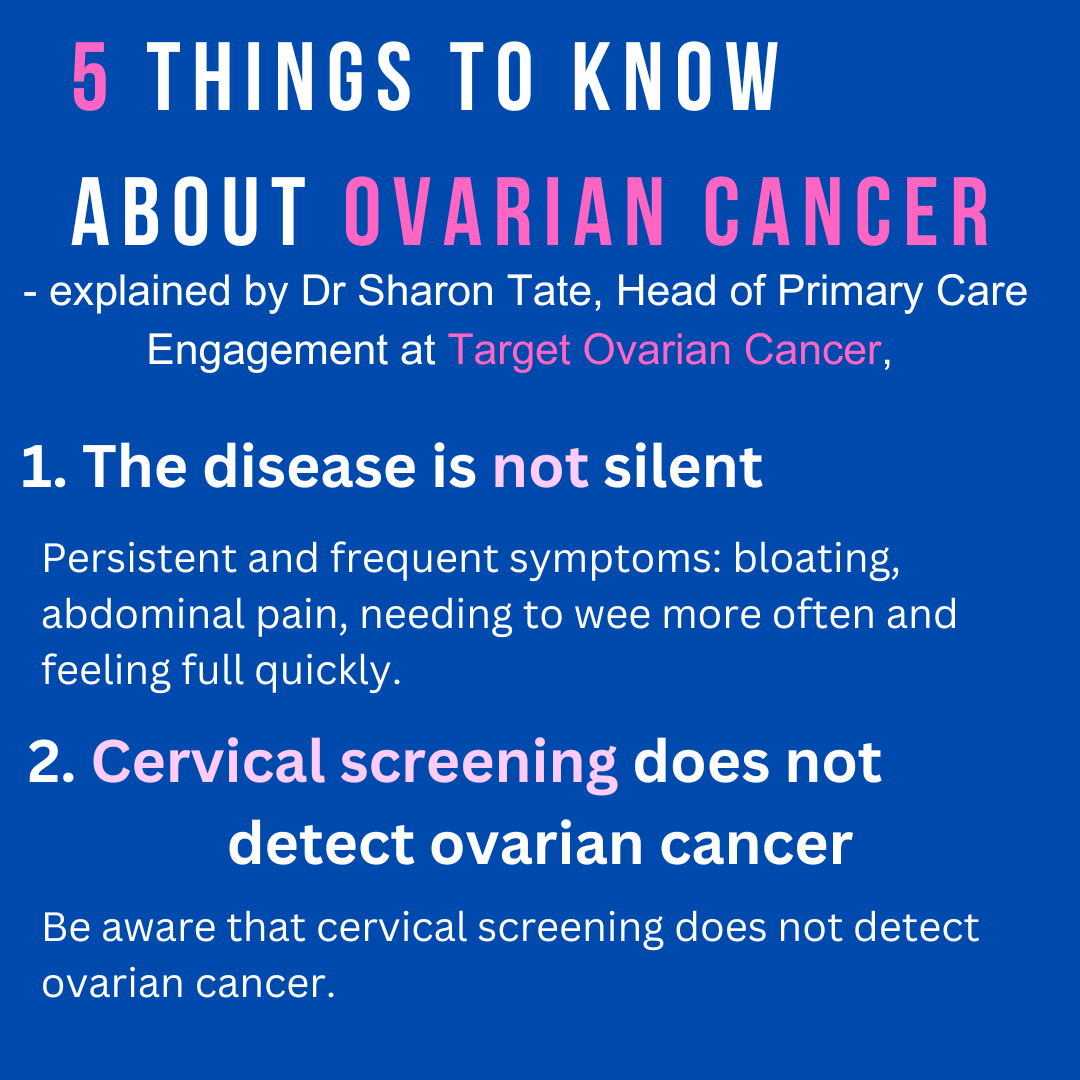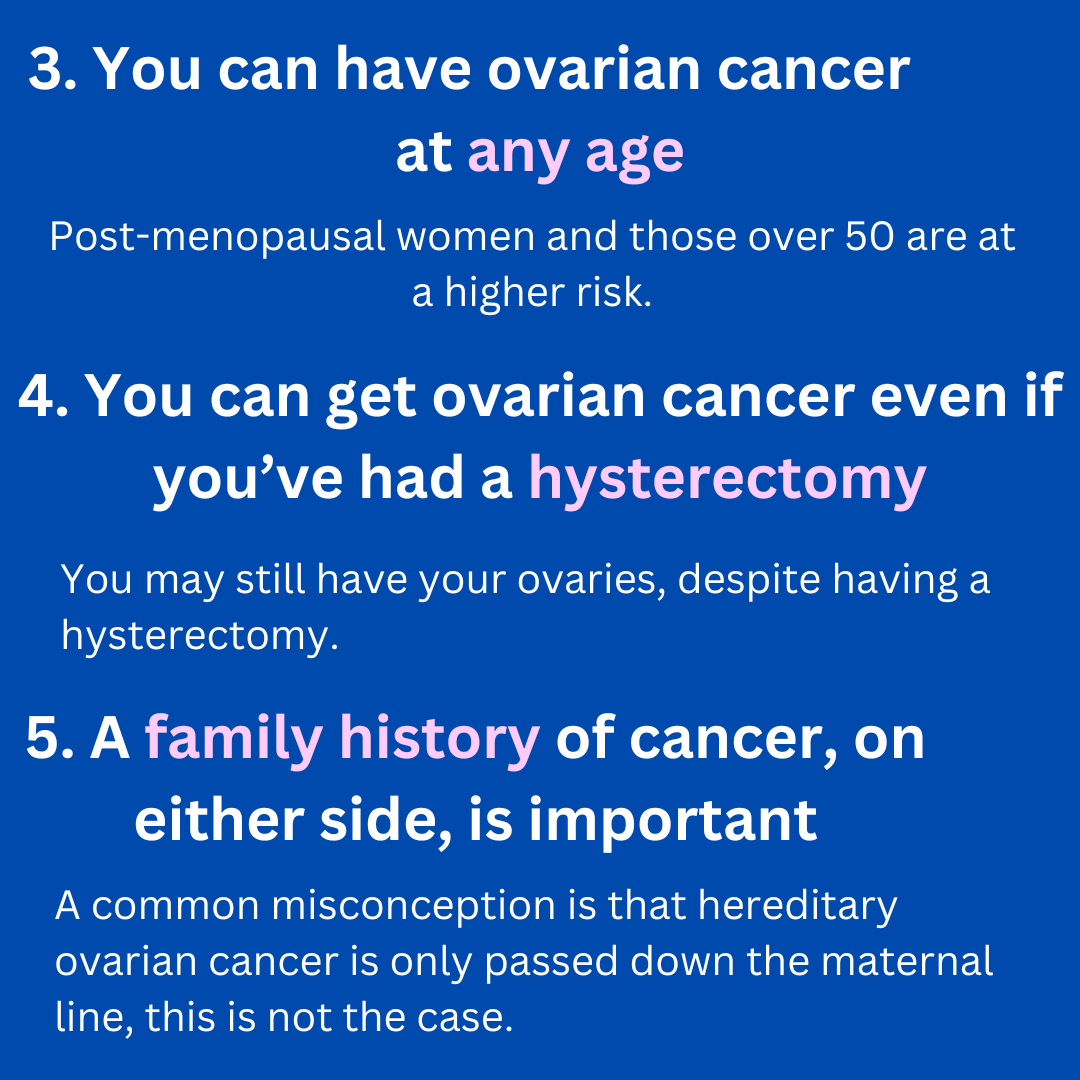
Rachel Mungai, lead nurse at Target Ovarian Cancer
Target Ovarian Cancer is a charity that helps women with ovarian cancer. They aim to raise awareness around this type of cancer with symptoms awareness, early diagnosis, better treatments, and support for all.
Ovarian cancer cannot be diagnosed through cervical screening tests despite common beliefs.
“More must be done so that women are diagnosed at much earlier stages, when the outcomes could be more promising from the outset,” said Pauline Donnelly, who was diagnosed with stage 4 ovarian cancer in 2021.
“Discussions must be had with women during their cervical smear exams as many women wrongly believe the smear test will pick up ovarian cancer. Opportunities like this should not be missed. This must change.”
Target Ovarian Cancer said that the awareness of the disease remains concerningly low, and misconceptions prevail leading to delayed diagnosis.
“March is Ovarian Cancer Awareness Month and we want to empower women to get help quickly if they’re concerned,” said Helen Dickens, Deputy Chief Executive at Target Ovarian Cancer.
Rachel Mungai, the lead nurse at Target Ovarian Cancer shared her expertise on how to diagnose ovarian cancer.
“We provide support to anybody affected by ovarian cancer, from those who are worried about the symptoms of ovarian cancer, in the process of getting diagnosed, right through to women undergoing treatment.
“We also support family, friends and loved ones.”
Rachel explained that the four main symptoms of ovarian cancer are feeling full quickly, persistent bloating, abdominal pain and a frequent or urgent need to pee.
“It’s very easy to pass the symptoms off as being something else. But even with early-stage ovarian cancer, the symptoms are quite often there.
“It’s really important to just be aware of the symptoms as there is currently no national screening programme for the disease. If you experience these symptoms, see your GP and say ‘I’m worried about ovarian cancer’.
“A lot of women who were diagnosed with ovarian cancer are aged over 50 or more and the development of symptoms might coincide with their menopause. It’s very easy to think ‘I’m just getting symptoms because of menopause’ but if you are experiencing any of these symptoms which are frequent, persistent and new for you, go see your GP so you can have ovarian cancer ruled out or diagnosed, and then treated.
“We are here for anyone affected by ovarian cancer. As well as our support line, which is open Monday to Friday, there is a lot of useful information available on our website too,” said Rachel about Target Ovarian Cancer.
You can find out more about the charity’s work, and how to seek help, at: www.targetovariancancer.org.uk


Subscribe or register today to discover more from DonegalLive.ie
Buy the e-paper of the Donegal Democrat, Donegal People's Press, Donegal Post and Inish Times here for instant access to Donegal's premier news titles.
Keep up with the latest news from Donegal with our daily newsletter featuring the most important stories of the day delivered to your inbox every evening at 5pm.